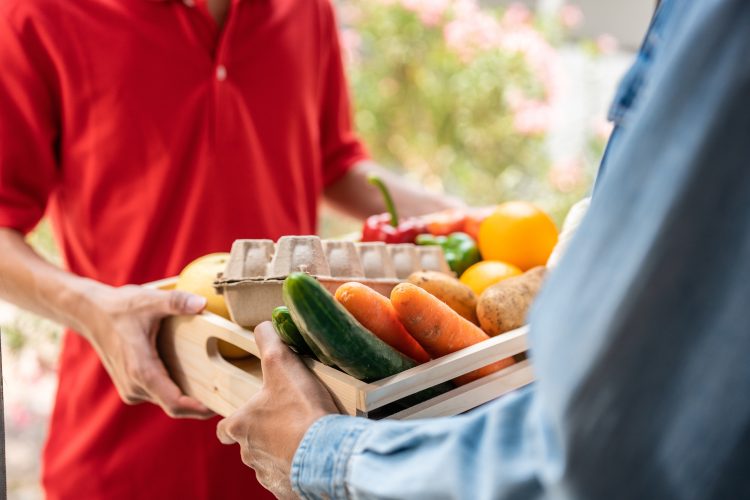Effective redistribution can save two million tonnes of food, research finds
- Like
- Digg
- Del
- Tumblr
- VKontakte
- Buffer
- Love This
- Odnoklassniki
- Meneame
- Blogger
- Amazon
- Yahoo Mail
- Gmail
- AOL
- Newsvine
- HackerNews
- Evernote
- MySpace
- Mail.ru
- Viadeo
- Line
- Comments
- Yummly
- SMS
- Viber
- Telegram
- Subscribe
- Skype
- Facebook Messenger
- Kakao
- LiveJournal
- Yammer
- Edgar
- Fintel
- Mix
- Instapaper
- Copy Link
Posted: 25 June 2024 | Grace Galler | No comments yet
A new report has claimed that up to two million tonnes of food could be saved from being wasted by 2029 with effective redistribution solutions.


Currently around one third of all food is wasted, according to the Food and Agriculture Organization (FAO), however a new study has spotlighted a method that could potentially save up to two million tonnes of food waste.
Biffa, a sustainable waste management company, has shared that, within the next five years, up to two million tonnes of food waste could be avoided by usage of redistribution solutions.
The report itself is titled “The UK Journey to Circularity” and was launched alongside Biffa’s Waste Net Zero conference that took place at the Birmingham Hippodrome on 11 June.
To create the report, Biffa worked in partnership with WSP, the investigation outlines eight interventions needed from businesses, consumers and the UK Government. These eight interventions include timescales for implementation.
The companies have found that expanding food redistribution offers the greatest potential to reduce food loss and waste, potentially preventing up to two million tonnes of surplus food from entering the waste stream.
New Food has previously reported on numerous companies that utilise food redistribution methods in order to cut down on food that would otherwise be wasted, including Too Good To Go and Olio. However, The Biffa Group has highlighted that there has also been significant progress in food redistribution solutions with its subsidiary Company Shop Group – an organisation that works directly with manufacturers and retailers to help prevent food from becoming waste, processing ‘surplus stock’ which would not make it to consumers.
From trash to treasure: Revolutionising food redistribution with Olio
Food redistribution models can work in various ways however one key example is that businesses can sell short-dated stock or unsold food and drink for reduced prices however these solutions largely focus on the lower end of the supply chain. Biffa suggests that “expansion further up the chain would support greater redistribution and provide an outlet for food loss”.
Going further, Biffa states that UK Government “needs to play a key role too”, explaining “the existing commitment to mandatory segregated food waste collections – as part of the Simpler Recycling legislation in England and the already live Workplace Recycling scheme in Wales and existing legislation in Scotland – has the potential to capture 1.4 million tonnes of material that can’t currently be effectively extracted due to co-mingling with other residual waste”.
The implementation of Simpler Recycling in England in 2025 will require all UK businesses with more than 10 employees to separate food waste for dedicated collection for the first time. A new survey by Biffa found that Simpler Recycling is considered the second most important upcoming waste legislation, with nearly two-thirds (62 percent) of UK businesses recognising its potential impact.
Additional interventions—such as matching food supply and demand, redefining the value of food, and shifting towards reusable packaging, especially in food contact applications—could reduce or process as anaerobic digestion for energy recovery, resulting in 0.3, 1.1, and 0.13 million tonnes of food waste reductions, respectively.
Carla Brian, Head of Partnerships at Biffa, outlines the requirements for achieving these substantial reductions: “Existing infrastructure capacity to handle upcoming changes in how food waste is collected and handled is insufficient, so needs expanding.
“Transport, reverse logistics, sorting, cleaning and storage capacity will be necessary if opportunities for food redistribution are maximised. Anaerobic digestioncapacity will also need to be built out once there is confidence more food waste will be captured,” continued Brian.
In addition, Brian noted that she believes legislative changes to food waste collections “will generate data that clarifies the size of the UK’s food waste problem” and went on to note “most data currently relies on estimations. Food systems reporting (such as mandatory reporting for businesses and development of a clear food hierarchy) would allow for better understanding of where and how food loss occurs and waste is generated, enabling development of targeted circular activities. Implementation of these pieces of legislation needs to be carefully considered, though, to ensure the impact is not detrimental to businesses.”
What’s more, Brian highlighted that changing behaviour in expectations when it comes to visual appearance of food could minimise waste by removing consumer demand for ‘perfect’ fruit and vegetables.
“Better matching of supply to demand would help consumers to only buy what they need, which can be done by selling more loose produce and removing sales tactics like ‘buy one, get one free’ offers,” continued Brian.
“There’s a direct link between infrastructure and investment, but supplementary investment in areas that aid understanding of the impact and effectiveness of change – like food waste reporting systems – will also identify opportunities for change and make implementation easier.”








